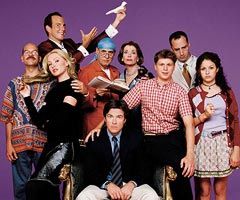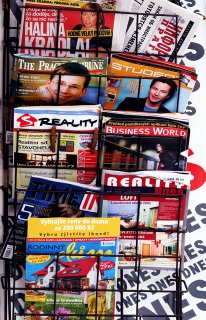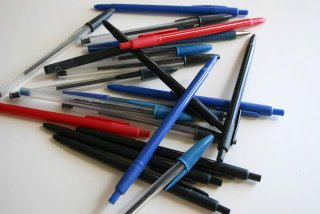
Well first off I really enjoyed
Daniel Meadows' lecture.
An online orator using a computer during a lecture seemed fine to me. Showing us work
Capture Wales has produced seemed fair enough. Reading from notes, with little asides and side swipes at the media, seemed within the professional standards we have had so far.
So what is all this user-generated content really about? We have heard a lot about it recently. My word haven't we heard a lot about it. The cynical view of Daniel Meadows was that being allowed to push a
red button (
red is just so inviting) did not constitute a 'media-conversation' but rather a leash with which the media companies can keep control over a (supposed) moronic population who will be happy to vote for, or against, brainless idiots on Big Brother.
Like phone-in quizzes, or X-factor shows, they are not interactions but corporate money-making schemes dressed up as 'you the audience are in control' shows.
And he is right. It is not a dialogue.
People want to be told things. But they want an "electronic embrace". They want journalists to go out and find stories, to produce them professionally, to provide them with an understanding of what is going on the world. But they then want the ability to talk back on their terms. They do not all want to just be given the choice of A or B and told 'take it or leave it' with a shrug of the media baron's shoulders.
-------------------------------------------------------------------------------
Here is one of the
videos we were shown. It is simple, unassuming and perhaps, in all honesty, irrelevent. But it is interesting. It is reality. It is life. Perhaps that is all it is. A record for the future. If this new age of user-generated content is opening up avenues of artistic creation to those who would never have even thought about it before then how can it be anything but a positive thing?
Power to the people...




























